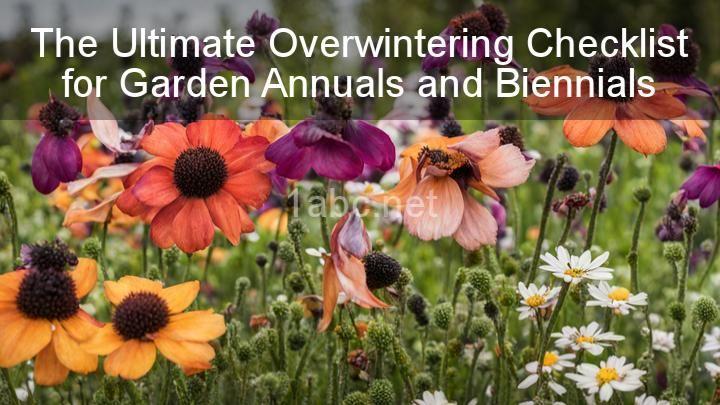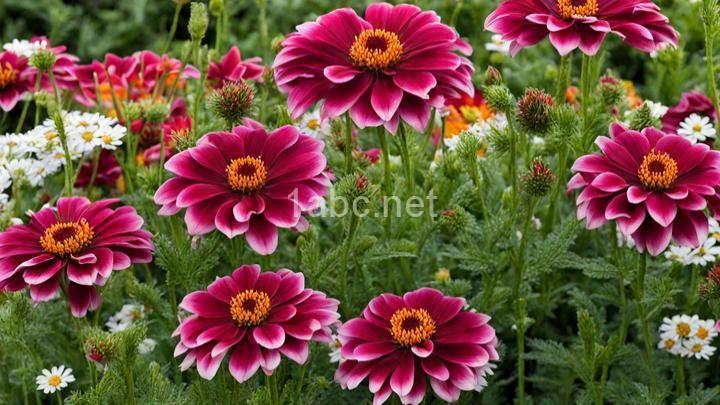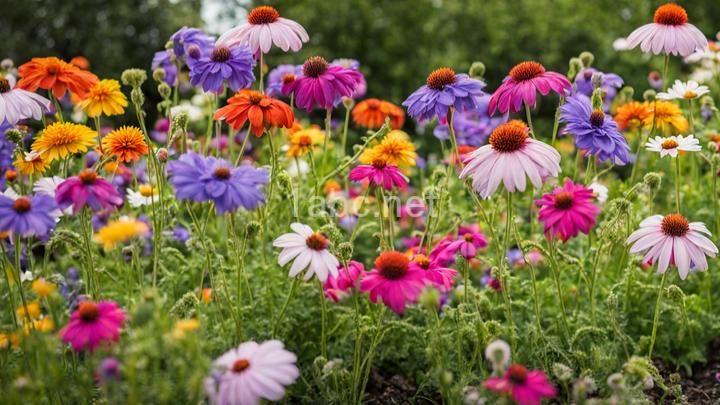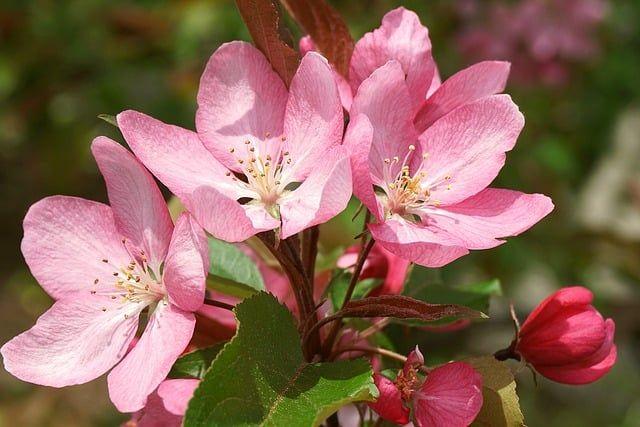The Ultimate Overwintering Checklist for Garden Annuals and Biennials

Welcome fellow gardeners! As the chilly winter months approach, it's important to ensure that our beloved annuals and biennials survive and thrive until spring. In this ultimate overwintering checklist, we'll guide you through the essential steps to protect your plants during this dormant period. Let's get started!
I. Assessing Plant Health
The first step in overwintering your garden annuals and biennials is to assess their overall health before winter sets in. Take stock of each plant, examining the foliage, stems, and roots. Look for any signs of disease or pests, such as yellowing leaves, wilting, or discoloration.
If you identify any diseases or infestations, it's crucial to take immediate action. Remove or treat affected plants to prevent the spread of diseases to other healthy plants. Use appropriate treatments or organic remedies to address the specific issues your plants may be facing.
II. Preparing Plants for Winter
Once you've assessed the health of your garden annuals and biennials, it's time to prepare them for winter. Start by cleaning up any dead foliage. Remove any fallen leaves or stems from the plants as they can create a breeding ground for pests and diseases.
Next, consider pruning your plants to an appropriate height. Trimming back the plants helps promote healthy growth in the spring and prevents them from becoming too leggy or overgrown during the winter months. Be sure to research the specific pruning requirements for each type of plant to ensure you're doing it correctly.
Mulching is another essential step in preparing your plants for winter. Apply a layer of protective mulch around the base of your garden annuals and biennials. Mulch helps insulate the soil, regulate temperature fluctuations, and retain moisture, which is especially important during the colder months.
III. Providing Adequate Protection
To protect delicate annuals and biennials from harsh winter conditions, it's important to provide them with adequate protection. Consider covering vulnerable plants with protective coverings like burlap or frost blankets. These coverings help shield plants from freezing temperatures, harsh winds, and excessive moisture.
Another option for creating a protective environment for your plants is to utilize structures like cold frames or cloches. These structures act as mini-greenhouses, trapping heat and creating a microclimate that is warmer than the surrounding environment. This can be particularly beneficial for more sensitive plants that may not tolerate extreme cold temperatures.
IV. Watering and Moisture Management
Proper watering and moisture management are crucial during the winter months. Adjust your watering schedule to accommodate the changing weather conditions. Reduce the frequency of watering, as plants typically require less water during their dormant period.
However, it's important to ensure that the soil doesn't dry out completely. Check the moisture level of the soil regularly and water as needed to prevent dehydration. Be cautious not to overwater, as excess moisture can lead to root rot and other issues.
V. Pest Control Measures
While pests may be less active during the winter months, it's still important to monitor their activity and take preventive measures. Keep an eye out for any pests seeking refuge on your plants. Remove any visible pests and consider using organic pest control options.
Natural deterrents like neem oil, insecticidal soaps, or companion planting can help keep unwanted critters at bay. Research the specific pests that may affect your garden annuals and biennials during winter and choose appropriate pest control methods accordingly.
VI. Indoor Overwintering Options
If feasible, consider moving potted annuals and biennials indoors for protection against harsh weather conditions. Transplanting them into containers allows you to create a controlled environment that mimics their natural growing conditions.
When moving plants indoors, ensure they receive adequate light. Place them near windows where they can get sufficient sunlight. If natural light is limited, you can supplement with grow lights to provide the necessary light spectrum for photosynthesis.
VII. Regular Monitoring
Even though your garden annuals and biennials may be in a dormant state during winter, it's essential to check on them periodically. Inspect for any signs of stress, disease, or pest infestations. Pay attention to changes in the foliage, stems, or overall appearance of the plants.
If you notice any issues, make the necessary adjustments promptly. Addressing problems early on increases the chances of saving your plants and ensures their health and vitality when spring arrives.
Conclusion
By following this friendly overwintering checklist, you can give your garden annuals and biennials the best chance of survival during the winter months. Remember, a little extra care now will reward you with vibrant blooms and healthy plants when spring arrives. Happy gardening!
FREQUENTLY ASKED QUESTIONS
Which plants are considered annuals and biennials?
Annual plants are those that complete their life cycle within a year. These plants germinate, grow, produce flowers, set seeds, and then die within a single growing season. Some common examples of annual plants include petunias, marigolds, zinnias, sunflowers, and impatiens.
Biennial plants, on the other hand, have a life cycle that spans over two years. In the first year, biennials germinate and form a low rosette of leaves. They usually do not produce flowers during this time. In the second year, biennials grow taller, produce flowers, set seeds, and then die. Examples of biennial plants include carrots, parsley, foxgloves, and hollyhocks.
It's worth noting that certain environmental factors, such as temperature and climate, can influence the growth patterns of plants. In some regions, plants that are typically annuals or biennials may exhibit different behaviors due to the local conditions.
When should I start preparing my garden for overwintering?
To prepare your garden for overwintering, it is generally recommended to start the process a few weeks before the first frost date in your area. This timing will allow you to complete necessary tasks such as:
- Cleaning up: Remove any dead plants, weeds, fallen leaves, and debris from your garden beds to prevent diseases and pests from overwintering.
- Mulching: Apply a layer of organic mulch, such as straw or wood chips, around the base of perennial plants to provide insulation and protect them from extreme temperatures.
- Protecting delicate plants: If you have tender plants, such as potted tropical plants or herbs, consider moving them indoors or providing them with extra protection, such as using frost blankets or cold frames.
- Pruning: Trim back any dead or damaged branches from trees and shrubs, and consider pruning perennial plants to an appropriate height, following specific plant requirements or guidelines.
- Soil preparation: Before the ground freezes, consider adding compost or organic matter to your garden beds to improve soil fertility and structure for the coming spring.
By starting these preparations a few weeks before the first frost, you can ensure that your garden is adequately protected and ready for the winter months ahead.
What are the key steps involved in overwintering garden annuals and biennials?
Overwintering garden annuals and biennials involves the following key steps:
- Assessing the plants: Determine which annuals and biennials you want to overwinter. Some varieties may not be suitable for the process or may not survive well.
- Transplanting: If your annuals or biennials are growing in containers, consider transplanting them into the ground. This provides better insulation and protection during the cold months.
- Pruning: Cut back the plants to a manageable height, usually a few inches above ground level. This helps eliminate any dead or diseased foliage and reduces the plant's overall size.
- Mulching: Apply a layer of organic mulch, such as straw or wood chips, around the base of the plants. This helps insulate the roots and regulate soil temperature during winter.
- Watering: Make sure to water the plants thoroughly before the first frost. This helps prevent dehydration during the winter months, especially if there isn't much precipitation.
- Protection: Consider covering your annuals and biennials with protective materials, such as burlap or frost blankets. These shields can help protect the plants from harsh winter winds and frost damage.
- Pest control: Inspect the plants for any signs of pests or diseases before winter. Treat any issues accordingly to prevent them from causing further damage during the dormant period.
- Monitoring: Throughout the winter, check on your overwintered plants regularly. Remove any debris or fallen leaves that might accumulate around them, as these can create a breeding ground for pests and diseases.
By following these steps, you can increase the chances of successfully overwintering your garden annuals and biennials, allowing them to thrive again when spring arrives.


